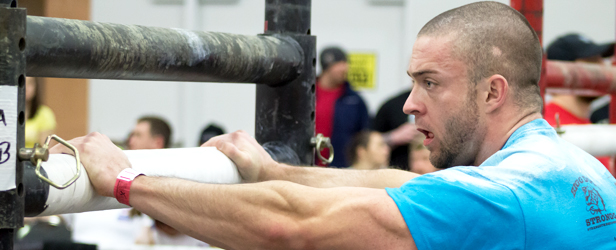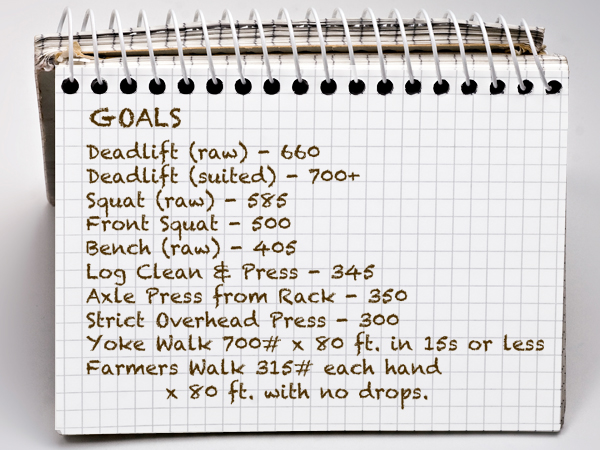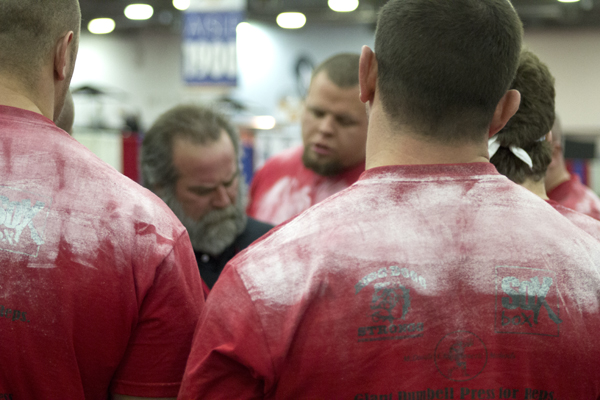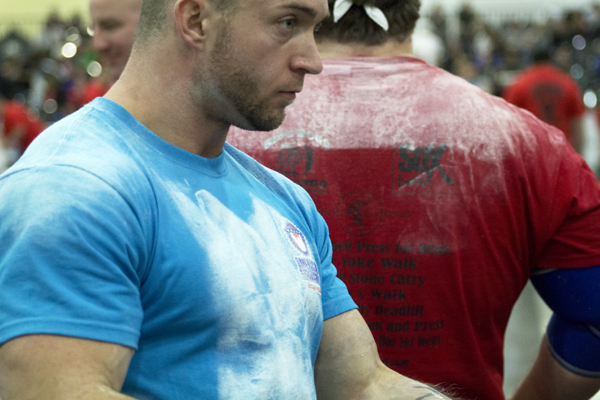
An often overlooked aspect of the iron game is the importance and the effect your mental game has on your performance. I’ve always been a pretty confident person, driven and goal-oriented. I’ve competed in athletics most of my life. From competing in martial arts at a young age, I have also learned the importance of a proper mental state on athletic performance. It wasn’t until I studied exercise psychology in college that it all came together. Looking back, I feel I could’ve been a better young athlete if I had understood this area better. While I’m not an expert in exercise psychology by any means, the following tips and tricks are things I use on a daily, weekly, monthly and yearly basis to maximize my performance.
Henry Ford said it best: “Whether you think you can, or you think you can't—you're right.”
Dr. Matt Wiggins, who I studied under at Murray State really sparked my interest in exercise psychology. I noticed my progress in the gym and in competition improve noticeably when I started applying what he taught me. I will also say that what works for me may not work for you. I know I’ve tried a variety of techniques over the years and some proved very effective while others were not useful. I recommend that you experiment with these, be open to other techniques, and find what works best for you.
Goal Setting
Everyone has heard that setting goals is important, but how many of you have actually set goals and looked at them on a regular basis throughout the year? Every January, I sit down and set goals for the upcoming year based on my current strength levels and where I want to be within the year. The past few years it’s broken down like this:
I may set a one-rep max goal, a time goal or a rep goal. This is determined by the specific lift or event. I make sure the goal I am aspiring to is high enough that it’s challenging, but not so high that it is unrealistic. And you know what happens? A majority of the time, I hit the goal and sometimes I even surpass it. Something very powerful happens when you write down goals and review them often. What may seem difficult becomes believable and eventually your mind will approach it as if it has already been accomplished. Thanks to this repeated and belief-driven review of your goals, you may find that you have accomplished what seemed very challenging early in the year. I don’t always hit all my goals, but the ones I come up short on I’m usually not far off—and that’s progress.
The Next Training Session
At some point the day or two before my next training session, I look at my training program and what I’ll be hitting. Depending on what method of progression I’m using at the moment or what I’m training for, I’ll come up with a goal number of reps for my top end set or a weight if I’m going for a RM that day or it may be a time on timed events, distance on a max distance event. It could be the same weight and reps as previously done, but the goal is to do it faster, crisper and with better technique (which I’ll analyze on video and compare to the previous performance).
Once that goal is in my head, I’ll think about it periodically throughout that day, evening and into the next day. It’s on my mind and I’m on a mission to hit it. Before I even attempt it, I’ve already written it in my training journal. For example, if my goal was to hit 580 for a triple on deadlift I write “3” beside 580 before I’ve even attempted the lift in my journal. Something about this is almost magical. If I hit the goal it’s already written down in my journal. If I come up short, I’ve got to mark it out and write what I did hit. You know what sucks? Marking that shit out. Nothing pisses me off more than that. So by God, when I’m fixing to make that attempt I’ve already hit it in my mind and my training journal. Something about this really works for me. Keep in mind I only record things that are realistic. Sure I’d love to overhead press 400 pounds, but that’s not going to happen anytime soon. Writing it down and attempting it would be stupid. Stick with small PRs here. Those small PRs add up. Trust me.
Preparing For A Contest
When I’ve picked out my next competition and it’s time to prepare, I don’t only prepare with my training and nutrition, but I mentally prepare as well. This is when things really get dialed in. On the mental side of things, I’ll typically write something motivational. I’ll write it in my training journal and read it before each session. Getting ready for Nationals I had the following in my journal and read it often:
“My opponent isn’t as smart as me. He doesn’t train as hard. He doesn’t eat as well. His recovery methods are subpar. His genetics are inferior. He doesn’t want it as bad. He can be beat. I cannot. This is my year. Can’t stop. Won’t Stop. Unstoppable.”
Now, to some of you this may seem silly, corny or whatever. And, if that’s your opinion, that’s completely fine. But I find it keeps me grounded, driven and, most of all, it keeps the goal in the forefront of my mind.
No matter if it’s something you’ve written yourself or something you just came across that motivates you, I find this method to work great. Reading it before the training session helps you remember what you are training for and the importance of doing everything you’re programmed to do and why you are doing it.
Before the Lift
Before each big work set I’ve already completed the lift; not physically, but mentally. Sometimes I’ve hit the lift many, many times before the actual attempt. The brain cannot differentiate between what you are actually doing and what you are deeply visualizing. So, in your mind, you’ve done it before; sometimes many times before. When it’s go time, things just flow. When I visualize the lift, sometimes I do it quickly. For bigger lifts and PRs, I take more time with the visualization. I walk into another area of the gym or just get away from people and mentally rehearse. For big PRs this may start days, or even a week or longer, beforehand.
For example, if I was going for a big deadlift PR the following are things I may picture and think about with my eyes closed before I approach the bar:
- Chalking my hands and the chalk dust in the air.
- Staring down the loaded barbell on the platform.
- Pacing back and forth a few times.
- The sound of the music blaring—specifically whichever song gets me amped at that moment.
- The moment when I commit and am ready to approach the bar.
- The smell of the ammonia and watery eyes it gives me as I aggressively approach the bar.
- Seeing my feet get set in place under the bar.
- Gripping my elitefts™ Texas deadlift bar and the feeling of the knurling against my callused hands.
- Pulling my hips down, creating that tension, and pulling like hell.
- The smooth, but challenging rep as I pull the weight off the floor to lockout.
- The feeling of watery eyes, increased blood pressure and excitement once the weight is locked out.
- The rattle of setting down the weight that I just defeated.
- The feeling of joy that comes when a new PR is made, and the thought of my next PR coming into my mind.
As you can see, it can get pretty detailed. This does takes practice. Some people have a hard time with the visualization process as they may have an errant negative thought enter their mind during the process. If that happens, stop and start over. Everything should be positive and should be how you’d picture the perfect start, setup and rep when doing a PR.
These simple, but important processes are the techniques I use to step up my mental game. Now, it is time to step up yours!











